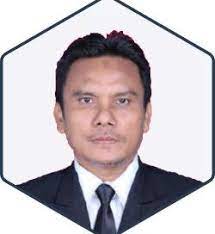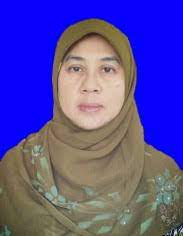Contact Us Author Guidelines Editorial Board Reviewers Peer Review Process Focus and Scope Publication Ethics Indexing and Abstracting Author Fees Digital Archiving Open Acces Policy Sponsporship Gen AI Policy
Publication Ethics
Introduction
Jurnal Berita Ilmu Keperawatan is a peer-reviewed . This statement clarifies ethical behaviour of all parties involved in the act of publishing an article in this journal, including the author, the chief editor, the Editorial Board, the peer-reviewer and the publisher (Department of Nurse Science Universitas Muhammadiyah Surakarta). This statement is based on COPE’s Best Practice Guidelines for Journal Editors.
Duties of Editors
Publication decisions
The editor of the Jurnal Berita Ilmu Keperawatan is responsible for deciding which of the articles submitted to the journal should be published. The validation of the work in question and its importance to researchers and readers must always drive such decisions. The editors may be guided by the policies of the journal's editorial board and constrained by such legal requirements as shall then be in force regarding libel, copyright infringement and plagiarism. The editors may confer with other editors or reviewers in making this decision.
Fair play
An editor at any time evaluate manuscripts for their intellectual content without regard to race, gender, sexual orientation, religious belief, ethnic origin, citizenship, or political philosophy of the authors.
Confidentiality
The editor and any editorial staff must not disclose any information about a submitted manuscript to anyone other than the corresponding author, reviewers, potential reviewers, other editorial advisers, and the publisher, as appropriate.
Disclosure and conflicts of interest
Unpublished materials disclosed in a submitted manuscript must not be used in an editor's own research without the express written consent of the author.
Duties of Reviewers
Contribution to Editorial DecisionsPeer review assists the editor in making editorial decisions and through the editorial communications with the author may also assist the author in improving the paper.
PromptnessAny selected referee who feels unqualified to review the research reported in a manuscript or knows that its prompt review will be impossible should notify the editor and excuse himself from the review process.
ConfidentialityAny manuscripts received for review must be treated as confidential documents. They must not be shown to or discussed with others except as authorised by the editor.
Standards of ObjectivityReviews should be conducted objectively. Personal criticism of the author is inappropriate. Referees should express their views clearly with supporting arguments.
Acknowledgement of SourcesReviewers should identify relevant published work that has not been cited by the authors. Any statement that observation, derivation, or argument had been previously reported should be accompanied by the relevant citation. A reviewer should also call to the editor's attention any substantial similarity or overlap between the manuscript under consideration and any other published paper of which they have personal knowledge.
Disclosure and Conflict of InterestPrivileged information or ideas obtained through peer review must be kept confidential and not used for personal advantage. Reviewers should not consider manuscripts in which they have conflicts of interest resulting from competitive, collaborative, or other relationships or connections with any of the authors, companies, or institutions connected to the papers.
Duties of Authors
Reporting standardsAuthors of reports of original research should present an accurate account of the work performed as well as an objective discussion of its significance. Underlying data should be represented accurately in the paper. A paper should contain sufficient detail and references to permit others to replicate the work. Fraudulent or knowingly inaccurate statements constitute unethical behaviour and are unacceptable.
Data Access, Retention and ReproducibilityAuthors are asked to provide the raw data in connection with a paper for editorial review, and should be prepared to provide public access to such data, if practicable, and should in any event be prepared to retain such data for a reasonable time after publication. Authors are responsible for data reproducibility.
Originality and PlagiarismThe authors should ensure that they have written entirely original works, and if the authors have used the work and/or words of others that this has been appropriately cited or quoted.
Multiple, Redundant or Concurrent PublicationAn author should not, in general, publish manuscripts describing essentially the same research in more than one journal or primary publication. Submitting the same manuscript to more than one journal concurrently constitutes unethical publishing behaviour and is unacceptable.
Acknowledgement of SourcesProper acknowledgement of the work of others must always be given. Authors should cite publications that have been influential in determining the nature of the reported work.
Authorship and Contributorship of the ArticleAuthorship should be limited to those who have made a significant contribution to the conception, design, execution, or interpretation of the reported study. All those who have made significant contributions should be listed as co-authors.
Where there are others who have participated in certain substantive aspects of the research project, they should be acknowledged or listed as contributors.
The corresponding author should ensure that all appropriate co-authors and no inappropriate co-authors are included on the paper and that all co-authors have seen and approved the final version of the paper and have agreed to its submission for publication.
Disclosure and Conflicts of InterestAll authors should disclose in their manuscript any financial or other substantive conflicts of interest that might be construed to influence the results or interpretation of their manuscript. All sources of financial support for the project should be disclosed.
Fundamental errors in published workWhen an author discovers a significant error or inaccuracy in his/her own published work, it is the author’s obligation to promptly notify the journal editor or publisher and cooperate with the editor to retract or correct the paper.
Allegations of Research Misconduct
Research misconduct means fabrication, falsification, citation manipulation, or plagiarism in producing, performing, or reviewing research and writing article by authors, or in reporting research results. When authors are found to have been involved with research misconduct or other serious irregularities involving articles that have been published in scientific journals, Editors have a responsibility to ensure the accuracy and integrity of the scientific record.
In cases of suspected misconduct, the Editors and Editorial Board will use the best practices of COPE and recommendations from International Committee of Medical Journal Editors to assist them to resolve the complaint and address the misconduct fairly. This will include an investigation of the allegation by the Editors. A submitted manuscript that is found to contain such misconduct will be rejected. In cases where a published paper is found to contain such misconduct, a retraction can be published and will be linked to the original article.
The first step involves determining the validity of the allegation and an assessment of whether the allegation is consistent with the definition of research misconduct. This initial step also involves determining whether the individuals alleging misconduct have relevant conflicts of interest.
If scientific misconduct or the presence of other substantial research irregularities is a possibility, the allegations are shared with the corresponding author, who, on behalf of all of the coauthors, is requested to provide a detailed response. After the response is received and evaluated, additional review and involvement of experts (such as statistical reviewers) may be obtained. For cases in which it is unlikely that misconduct has occurred, clarifications, additional analyses, or both, published as letters to the editor, and often including a correction notice and correction to the published article are sufficient.
Institutions are expected to conduct an appropriate and thorough investigation of allegations of scientific misconduct. Ultimately, authors, journals, and institutions have an important obligation to ensure the accuracy of the scientific record. By responding appropriately to concerns about scientific misconduct, and taking necessary actions based on evaluation of these concerns, such as corrections, retractions with replacement, and retractions, Nurse Media Journal of Nursing will continue to fulfill the responsibilities of ensuring the validity and integrity of the scientific record.
Complaints and Appeals
Jurnal Berita Ilmu Keperawatan will have a clearly procedure for handling complaints against the journal, Editorial Staff, Editorial Board or Publisher. The complaints will be clarified to respected personal with respect to case of complaint. The scope of complaints include anything related to journal business process, i.e. editorial process, found citation manipulation, unfair editor/reviewer, peer-review manipulation, etc. The complaint cases will be processed according to COPE guideline. The complaint cases should be sent by email to: jurnal_bik@yahoo.com.
Intellectual Property (Copyright Policy)
The journal's intellectual property or copyright policy is stated here.
Ethical Guideline for Journal Publication
The publication of an article in a peer-reviewed Jurnal Berita Ilmu Keperawatan is an essential building block in the development of a coherent and respected network of knowledge. It is a direct reflection of the quality of the work of the authors and the institutions that support them. Peer-reviewed articles support and embody the scientific method. It is, therefore, important to agree upon standards of expected ethical behaviour for all parties involved in the act of publishing: the author, the journal editor, the peer reviewer, the publisher and the society.
Department of Nurse Science Universitas Muhammadiyah Surakarta as publisher of Jurnal Berita Ilmu Keperawatan takes its duties of guardianship over all stages of publishing extremely seriously, and we recognise our ethical and other responsibilities. We are committed to ensuring that advertising, reprint or other commercial revenue has no impact or influence on editorial decisions. Also, the Department of Nurse Science Universitas Muhammadiyah Surakarta and Editorial Board will assist in communications with other journals and/or publishers where this is useful and necessary.
Ethical Oversight
If the research work involves chemicals, human, animals, procedures or equipment that have any unusual hazards inherent in their use, the author must clearly identify these in the manuscript in order to obey ethical conduct of research using animals and human subjects. If required, Authors must provide legal ethical clearance from association or legal organization.
If the research involves confidential data and of business/marketing practices, authors should clearly justify this matter whether the data or information will be hidden securely or not.
Plagiarism Policy
Jurnal Berita Ilmu Keperawatan (Journal of Research and Advances in Mathematics Education) apply Zero tolerance towards plagiarism and therefore establishes the following policy stating specific actions (penalties) when plagiarism is identified in an article that is submitted for publication in Jurnal Berita Ilmu Keperawatan.
Plagiarism involves the "use or close imitation of the language and thoughts of another author and the representation of them as one's own original work."
Papers must be original, unpublished, and not pending publication elsewhere. Any material taken verbatim from another source needs to be clearly identified as different from the present original text by (1) indentation, (2) use of quotation marks, and (3) identification of the source.
We use TURNITIN to evaluate the similarity index and then the editor decides the case of possible plagiarism (Similarity report will be provided to the author). The Editorial Board has passed the following actions:
- Similarity Index above 40%: Article Rejected (due to poor citation and/or poor paraphrasing, article outright rejected, NO RESUBMISSION accepted).
- Similarity Index (15-40%): Send to the author for improvement (provide correct citations to all places of similarity and do good paraphrasing even if the citation is provided).
- Similarity index Less than 15%: Accepted or citation improvement may be required (proper citations must be provided to all outsourced texts).
In cases 2 and 3, the authors should revise the article carefully, add required citations, and do good paraphrasing to outsourced text. And resubmit the article with a new Turnitin report showing NO PLAGIARISM and similarity of less than 15%.
Retraction and Withdrawal Policy
Retraction
The papers published in the Jurnal Berita Ilmu Keperawatan (Journal of Research and Advances in Mathematics Education) will be considered to retract in the publication if:
- They have clear evidence that the findings are unreliable, either as a result of misconduct (e.g. data fabrication) or honest error (e.g. miscalculation or experimental error).
- The findings have previously been published elsewhere without proper cross-referencing and permission or justification (i.e. cases of redundant publication).
- It constitutes plagiarism.
- It reports unethical research.
The mechanism of retraction follows the Retraction Guidelines of the Committee on Publication Ethics (COPE) which can be accessed at https://publicationethics.org.
Jurnal Berita Ilmu Keperawatan adopts the following retraction process:
- An article requiring potential retraction is brought to the attention of the journal editor.
- The journal editor should follow the step-by-step guidelines according to the COPE flowcharts (including evaluating a response from the author of the article in question).
- The final decision as to whether to retract is then communicated to the author and, if necessary, any other relevant bodies, such as the author's institution on occasion.
- The retraction statement is then posted online and published in the next available issue of the journal (see below for more details of this step).
Note that if authors retain the copyright for an article this does not mean they automatically have the right to retract it after publication. The integrity of the published scientific record is of paramount importance and COPE’s Retraction Guidelines still apply in such cases.
Withdrawal
The author is not allowed to withdraw submitted manuscripts after preliminarily review because the withdrawal is a waste of valuable resources that editors and referees spent a great deal of time processing submitted manuscript, money, and works invested by the publisher.
Jurnal Berita Ilmu Keperawatan has a policy regarding withdrawal as follows:
- If the author requests the withdrawal of his/her manuscript when the manuscript is still in the peer-reviewing process, the author will be punished by paying $200 USD per manuscript.
- If the withdrawal of the manuscript after the manuscript is accepted for publication; the author will be punished by paying $300 USD per manuscript.
- If the author doesn't agree to pay the penalty, the author and his/her affiliation will be blacklisted for publication in this journal (3 years).
- If the author request to withdraw a manuscript, an official letter signed by the corresponding author and agency leader must be sent to the Editor-in-Chief.
Discussions and corrections after publication
Reader feedback and corrections on previously published articles are appreciated by Jurnal Berita Ilmu Keperawatan. A reader may send an email to the editor-in-chief with comments and corrections on an article that has already been published. If accepted, the comments and revisions will appear as a Letter to the Editor in the subsequent edition (by the Editor in Chief). Respected writers may contact the editor in chief to reply to suggestions from readers and revisions. The answer may be printed as a Response to a Letter to the Editor, if appropriate.
Errata and Corrigenda
Changes/additions to accepted articles
All content of published articles is subject to the editorial review process, organized by and under the auspices of the editor. Should the authors wish to add to their article after acceptance, they must submit a request to the editor, and the new content will be reviewed.
- If the new material is added to the accepted article, it must be submitted for peer review as a new manuscript, referring back to the original;
- If the new material should replace the original content of the accepted article, the editor may consider the publication of an erratum or a corrigendum.
Erratum
An erratum is a correction of errors introduced to the article by the publisher.
All publisher-introduced changes are highlighted to the author at the proof stage, and any errors are ideally identified by the author and corrected by the publisher before final publication.
Corrigendum
A corrigendum refers to a change to the article that the author wishes to publish at any time after acceptance. Authors should contact the journal editor, who will determine the impact of the change and decide on the appropriate course of action.
Advertising Policy
- Jurnal Berita Ilmu Keperawatan sets high ethical standards in all its activities and, above all, defends the right to editorial independence. It does not allow advertising or sponsorship to influence the decisions made on editorial content.
- Readers understand that advertising is different from editorial material. They know that the claims made in advertising are not endorsed by Jurnal Berita Ilmu Keperawatan.
- Jurnal Berita Ilmu Keperawatan will carry advertisements that are legal and decent and conform to current recommendations and guidelines.
- Decisions on the positioning of advertisements are made independently of decisions made in the editorial department on the content of a specific issue.
- Editorial material will not be influenced by advertising. Jurnal Berita Ilmu Keperawatan does not publish material to accompany advertising and does not sell advertising in relation to particular articles.
- All decisions are at the discretion of the editor. If commercial clients adhere to these guidelines then their advertisement or sponsorship is likely to be accepted. Occasionally decisions may take time.


















